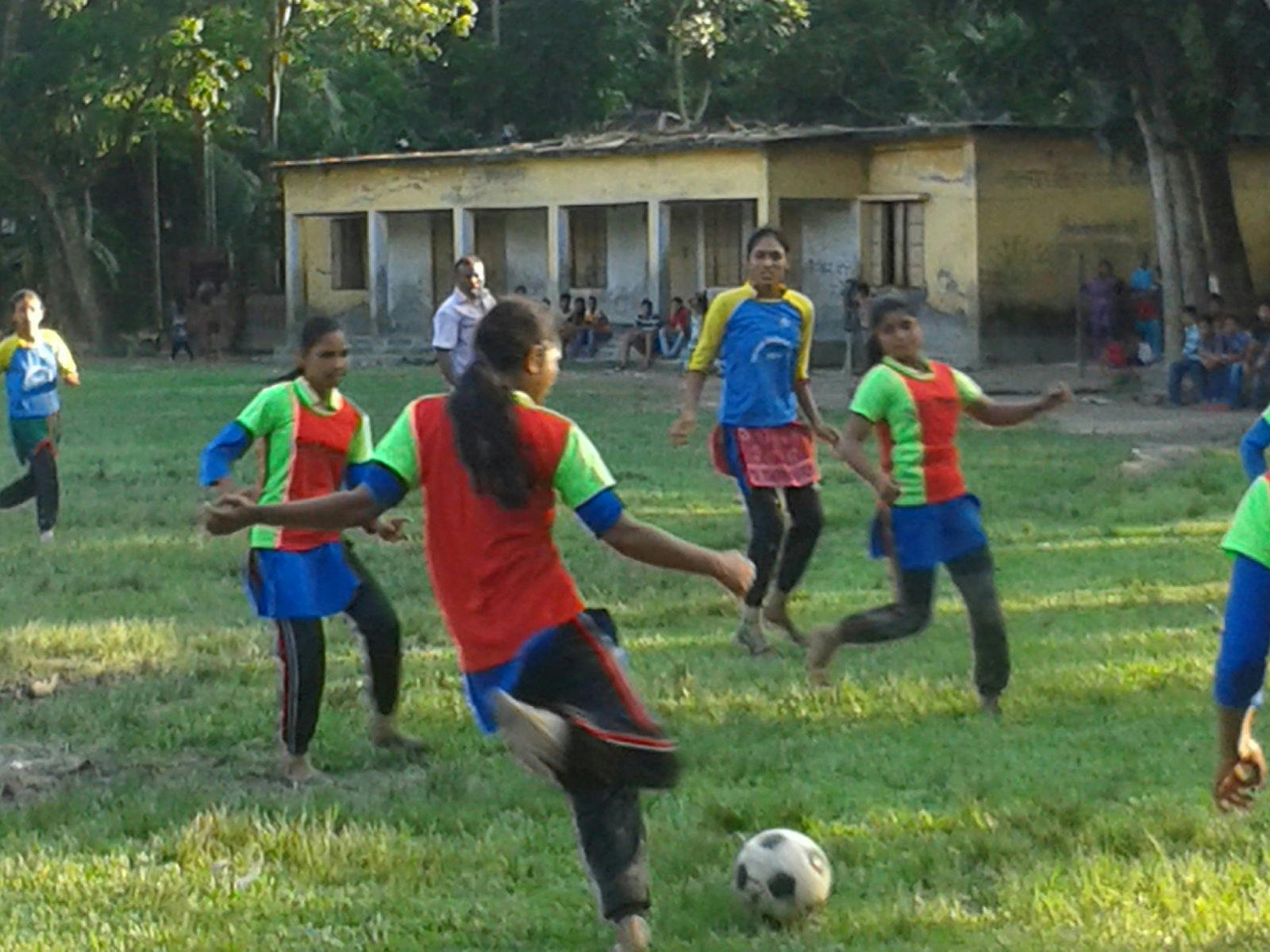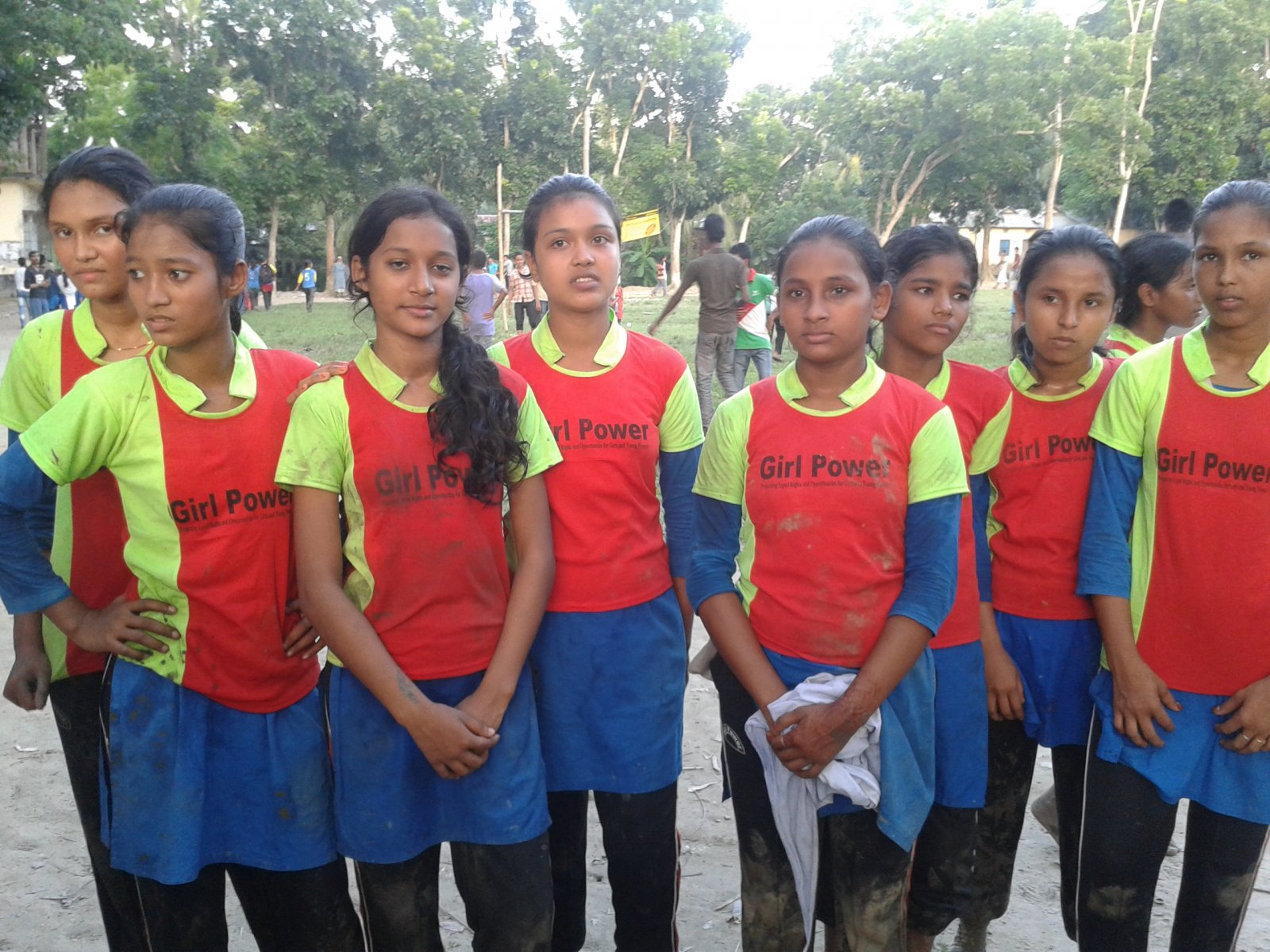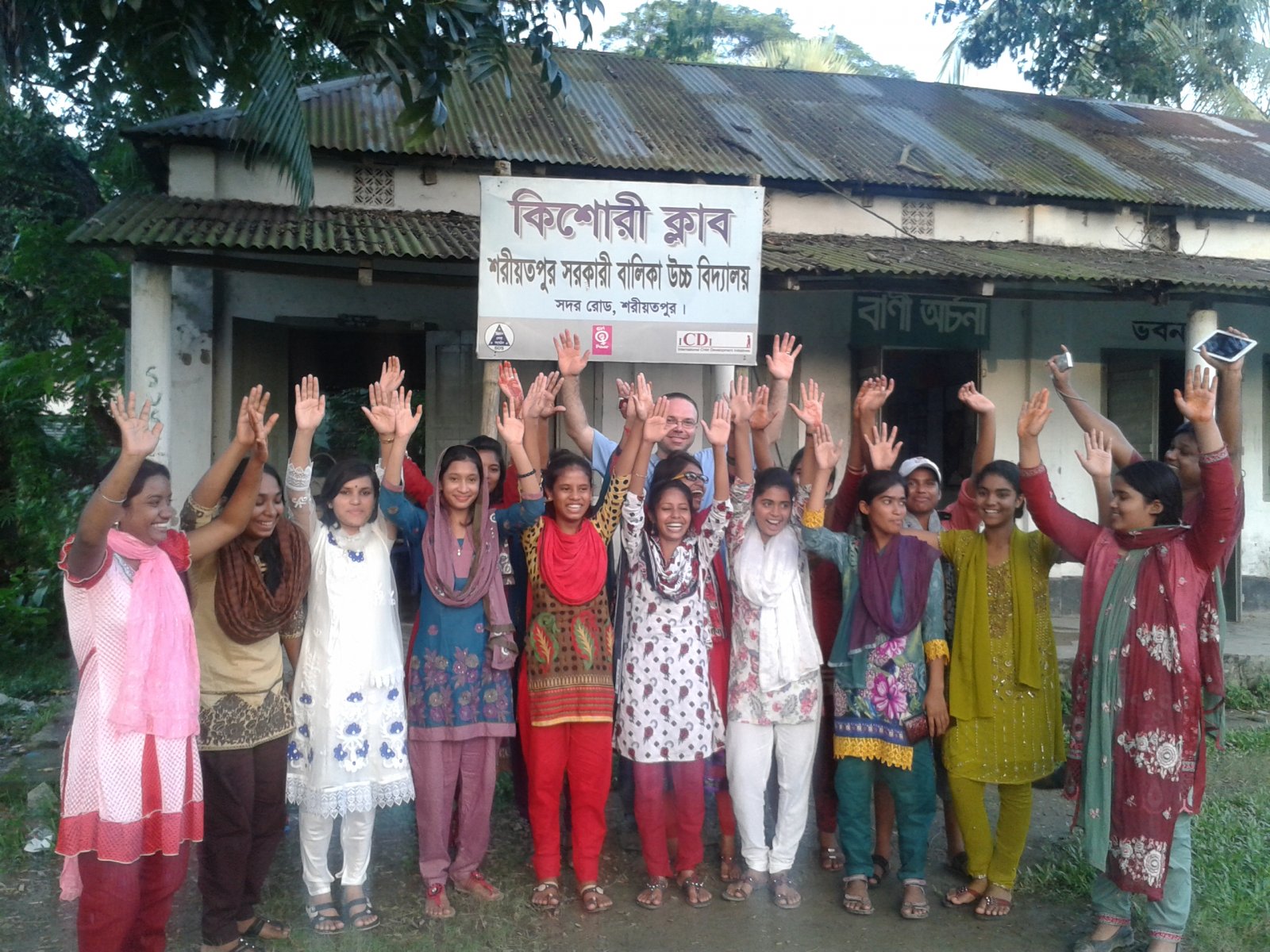Girls club empowered adolescent girl in rural Bangladesh
Apr 28, 2022
Story

Girls club member playing football at rural village


Munni is a 13 years old adolescent girl, lives in the remotest island area in Madaripur. She is a student of class seven and preparing for the next Junior School Certificate exam. Recently her parents tried to marry off her to a person who is 18 years older than her. The man is an expatriate in Italy and has a lot of money. Munni was not prepared for such an unpleasant situation. One afternoon, she met with one of her classmate named Subarna who is also a leader of the girls club of their school. Munni shared the problem with her and ask help to rescue her from that trouble. The next day Subarna call all the member of their club to a meeting and decided to go to Munni’s house to meant her parents not to marry off before completing her education. But Munni’s parents were strict on their decision and refused the application of those girls. After that, they directly went to the Deputy Commission of Madaripur district as he is the person who can solve this problem in a minute. Finally, Munni’s marriage ceremony stopped by the steps of district administration and she got the opportunity to continue her education.
In Bangladesh, the legal age for marriage is 21 for boys and 18 for girls. This was established with the national Child Marriage Restraint Act in 1929. However, the authorities rarely intervene to stop child marriages and parents continue to marry off their daughters secretly. Typically in rural areas, a girl’s family believes that they are ensuring her social status, security, shelter, stability and sustenance by marrying her off. Parents are not aware of the rights of the girl child and try to marry off their girl as soon as they got a good (Financially solvent) groom. Within the existing social value system, a girl child is less valued by families and society and is considered a burden to the families. This is the most important reason for girls being subjected to early marriage.
According to Plan International, Bangladesh has one of the highest rates of child marriage in the world. 64% of women currently aged 20–24 were married before the age of 18. But in the rural area, the rate is higher; it is more than 71% compared to urban areas 51%. On the other hand, a fact sheet published by Girls Not Brides (GNB) revealed that 65% (3rd position in the world) girls in Bangladesh married before their 18 birthday and 29% (2nd position in the world) before their 15th birthday.
Girls’ club works as an entertainment point and sharing centre for them. In the club girls share their personal problems, family issues like misunderstanding between parents, education, marriage; they play football, cricket, volleyball etc. Community people felt that confidence build-up is the key to prepare girls to face violence, stop child marriage and other forms of violence against them. Non-traditional game (especially football and Karate) is one of a strong tool to build up their confidence and break stereotype thinking, increase the mobility of girls. It is revealed that parents are more convinced for the higher education of their girls who allowed their girls to play, attend girls club and other social events.
“Primarily I didn’t agree to form a girl club in my school for girls to play football, but when I informed about the benefit of sports through training on gender in sports, I was convinced and applied to a local NGO to support us. After a few months, I observed the change between the girls, who involved in the club and those who are not. Girls, who involved with the club, are effectively challenging social norms within their won communities, their level of confidence and mobility increased. They are taking steps in their community to stop child and forced marriage” – Abul basher, Principal of Pachkhola High School, Madaripur.
“I am a member of the girl club in my school and I received life skill training from SDS, a local NGO. So I was informed about the rights of a girl and how I can get support to save myself. But I was feared to say no to my parents. Even I was informed about the child protection committee formed by SDS to make our village free from child marriage. I thanked my classmates and SDS to save my life” – Munni, Victim
Mamun Kazi
Social Worker




